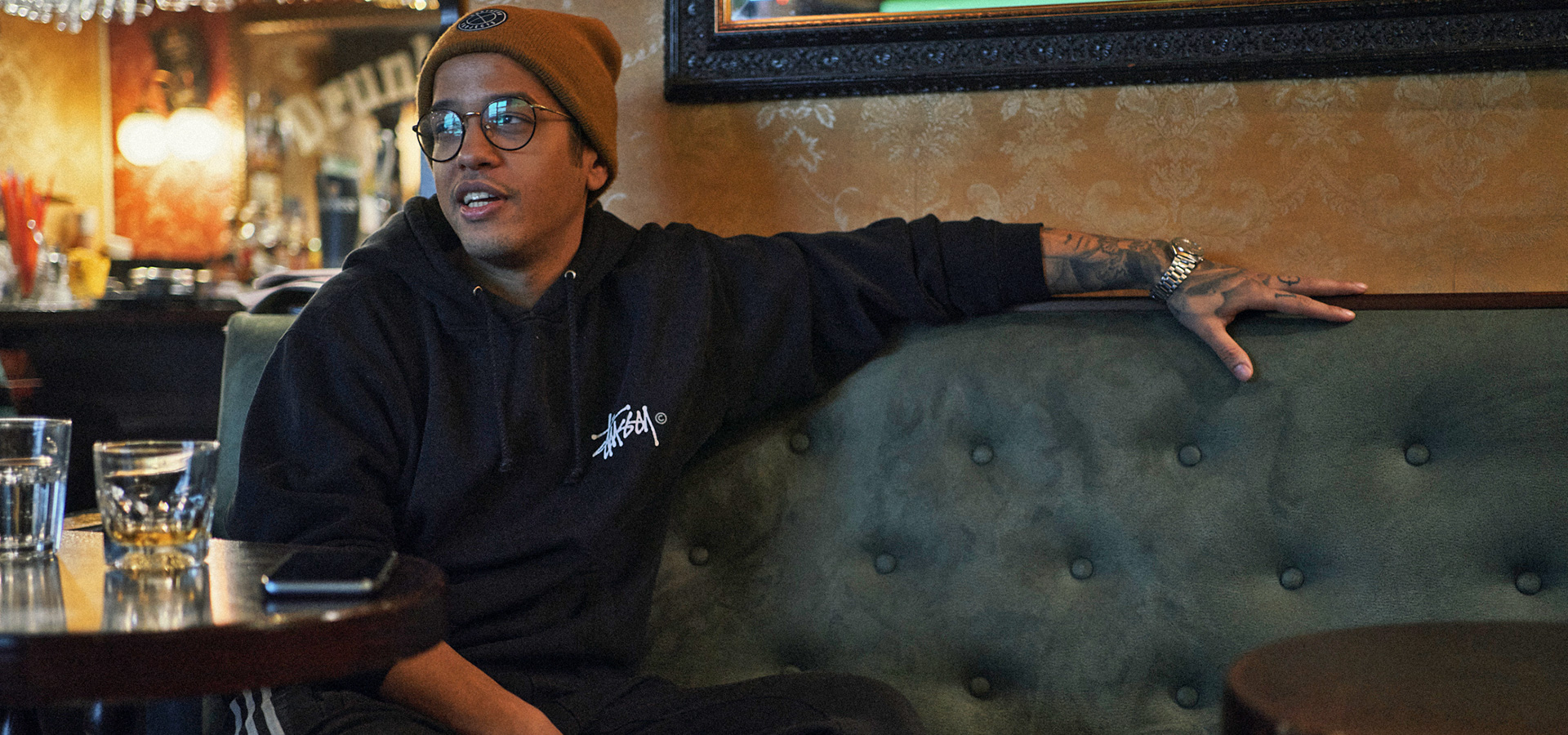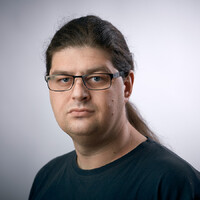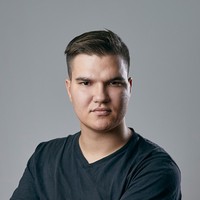Galeb Nikacevic: We don't learn anything from wellbeing
We all know Galeb Nikacevic as a ‘city celebrity’ who guided us through the world of music, told us interesting stories and did his best to bring our culture to the audience. Still, many don’t know that his name actually means ‘he who wins’, or as we’d say in Serbia ‘Victor’.
As someone who rose to stardom from humble beginnings, Galeb certainly lives up to his name, having won many victories throughout his life.
When you look back to your childhood, what do you remember first?
My childhood was closely linked to Vozdovac and Dusanovac, where I grew up.
My first memories are of my house and family and sadly they aren’t all nice ones.
The fond memories come from my teenage years and my first nights on the town. I remember those “burek-pizzas” as we called them that the fast food stands in Slavia would sell. Then there was clubbing in Trezor in 1995-1996 and the first ventures into the industry when I was 17-18.
There was also a spot in Kalemegdan where I liked to sit alone. You could still find those spots over there back in the days, where you could sit for hours and nobody would pass by. “Kalis” was full of secret spots from which I loved watching the Sava river and the promenade.
I remember fried smelts in paper cones, going to the cinema in Vozdovac, walking down the Boulevard with my mother and looking at various stands with illegally imported goods as well as the Depot we went to.
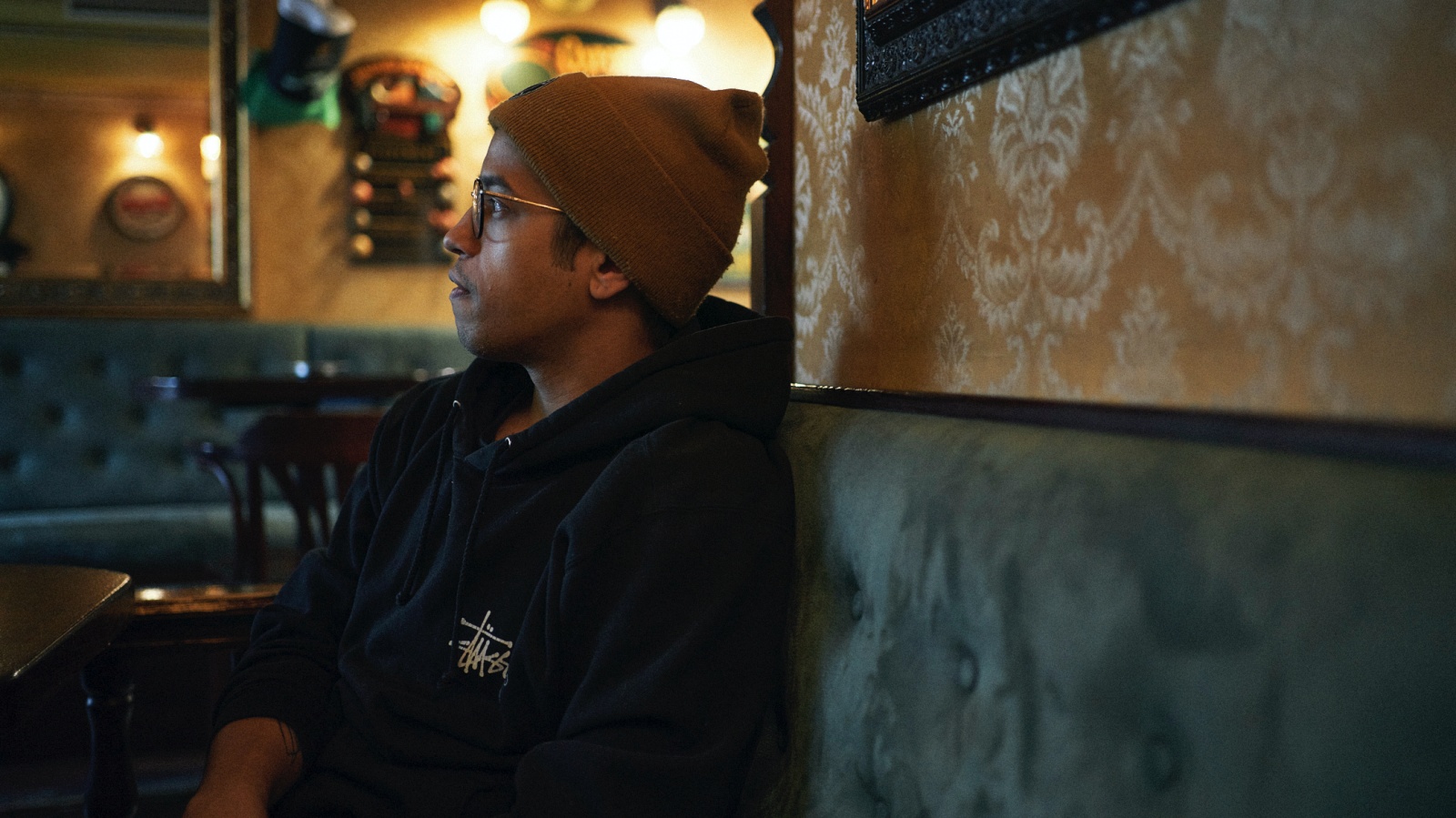
On the one hand the 90’s were something you survived, along with the rest of us. Still, you lost your father early on. That must’ve contributed to your childhood being more difficult than it had to be.
Memories do their thing. Somehow even the worst of them become romanticized over time. However, it was those worst memories that gave me some of my strongest virtues. Without them, I wouldn’t be me.
It’s very difficult to look back and be objective. Of course there were plenty of bad things. We were all having a rough time back then. But I think my path was set and determined by our country falling apart.
On the one hand, one half of me is my father’s Somali origin, of which I know nothing because I lost him early and never got to know him. Let alone have any contact with his side of the family. The war started over there at the same time as in Yugoslavia and I had no way to connect with them.
Still, the other half of me, the one I did know, wasn’t that great. We weren’t accepted by our own family because it was such a time in society when if you don’t have the same name, religion and origins as everyone else, you could have a lot of problems.
If you’re different in just one aspect, you’re already suspicious. If it’s in two aspects, you’re an outcast and if it’s in three or more, they start asking you “What are you even doing here?”
That’s when you start feeling the discrimination on your own skin. And when you’re a child, you have no idea why or what’s going on - you don’t even know what the word discrimination means. You come home and ask your mother ‘Mom, why does nobody like me? Why won’t anyone come to my birthday?’
That all builds a certain personality dynamic that set me on the path of seeking answers. It became my life philosophy. I’m a tourist in life. I get somewhere, I learn some things and when I’ve learned everything, I move on.
My only constant in life has been moving. I don’t stop at any single topic or environment - I’m always on the move and I think that all began in my childhood.
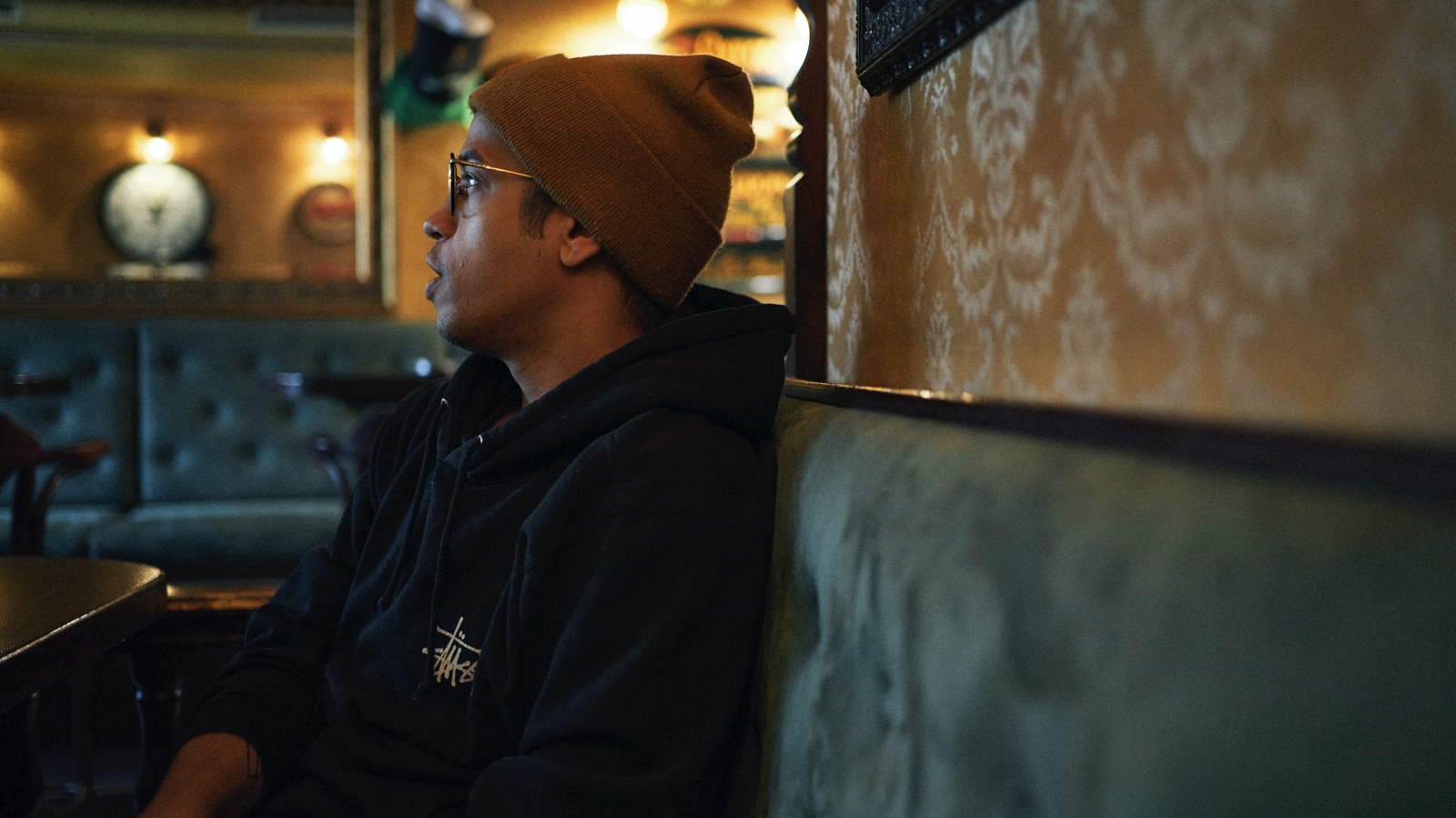
That’s probably why you enjoyed being on your own?
I’ve always liked being alone. As a kid, I shared a bunk bed with my sister where I slept on the top bunk. At night, when she and my mother were asleep, I’d sit by the big window in our room and look at our yard that was beautifully lit up and had a solemn atmosphere.
I liked to come out on our roof and sit on the shingles, looking at the sky and imagining aliens. Usually after seeing a sci-fi movie.
I’d also look at music videos on our TV or from a VHS and enjoy myself.
The story of how you eventually managed to find your Somali relatives is a famous one by now. Are you still in touch?
I still have a great desire to learn about that part of myself. I met my father’s side of the family and I see them very rarely because we’re all very busy. Their English is also a little lacking so we have a hard time understanding each other.
Still, we’re very different psychologically. Many things that we consider basic culture knowledge, they’d never heard about. They don’t know who Dostoyevsky is or about various modern movies. Then again, various things that are natural to them are completely unfamiliar to us.
The time we spend together is mostly passing by and you’re always on guard so as to not offend anyone. We’re family, but total strangers and we’d have to spend a lot of time together.
It is my great desire to pack up with my family and go to Somalia for five years or so. To live their life and explore my origin. I hope I’ll have an opportunity to do that some day.
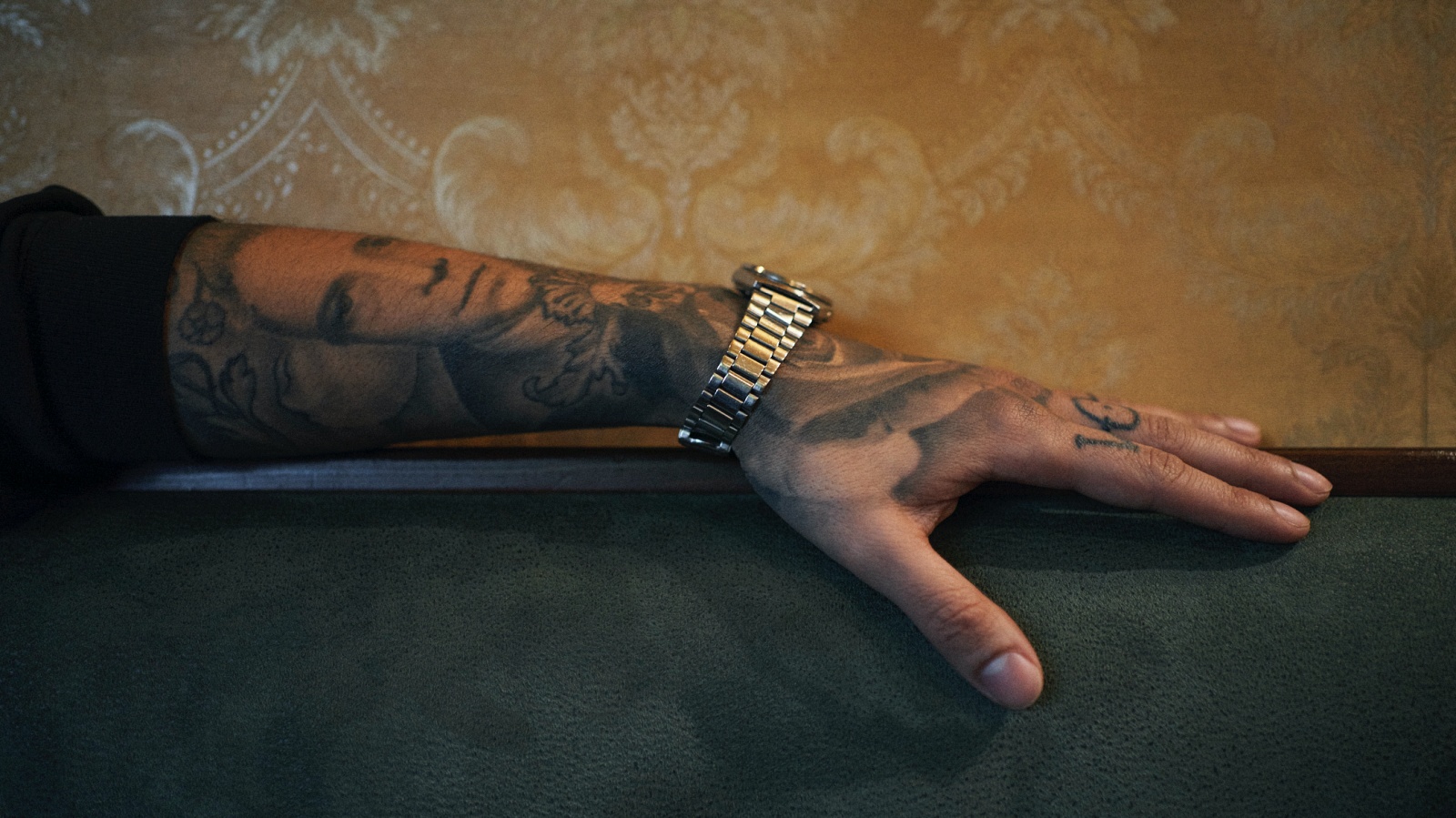
If there hadn’t been for all the problems you’ve faced, do you think Galeb Nikacevic would be a different person today?
I had a great desire to fit in and belong. It was that desire that guided me down the path of lesser resistance in many things in life. Until I was 25 or 26, I’d stuck to some rigid and conservative beliefs that aren’t only reserved for the right-leaning population. I had that kind of flaw which I might never have resolved if not for this internal conflict in my childhood when I faced that same kind of dicrimination.
Knowing this problem so intimately, various other beliefs that I grew into due to taking the path of least resistance I ended up challenging naturally and on my own accord.
I am very grateful I no longer hold those beliefs and that I remain skeptical to everything and always ask myself if it’s really right or not. That habit was probably born in that period.
When you see a huge group like soccer club fans, religious fanatics or various right-wing organizations who are all very strong and prominent right now - ranging from the Kosovo problem to ethical and religious beliefs, the Russia-USA relations and so on - you see that there’s a certain emotional investment on both sides of all those arguments. People take them personally and at the same time both sides are completely sure they are right. Not a single one of them is thinking “Well, this person paid me so I’ll…”. No, they all really believe in their cause.
The problem is that nobody is open for dialog - everyone just wants affirmation for their own identities and don’t tolerate anyone who isn’t like them.
When you live in a world stuck between other world, in a permanent sub-genre of your own, you tend to see the lines more clearly and don’t feel like you belong behind either one. But you see them differently compared to the people living behind them.
The writer Chuck Palahniuk said it best: “We don’t have scars to remember happy moments”.
We don’t learn anything from wellbeing. Character is built in hard moments and through crisis. That’s how you build what defines you later in life.
So would things be different for me? Certainly. But would they be better, necessarily? I somehow doubt that.
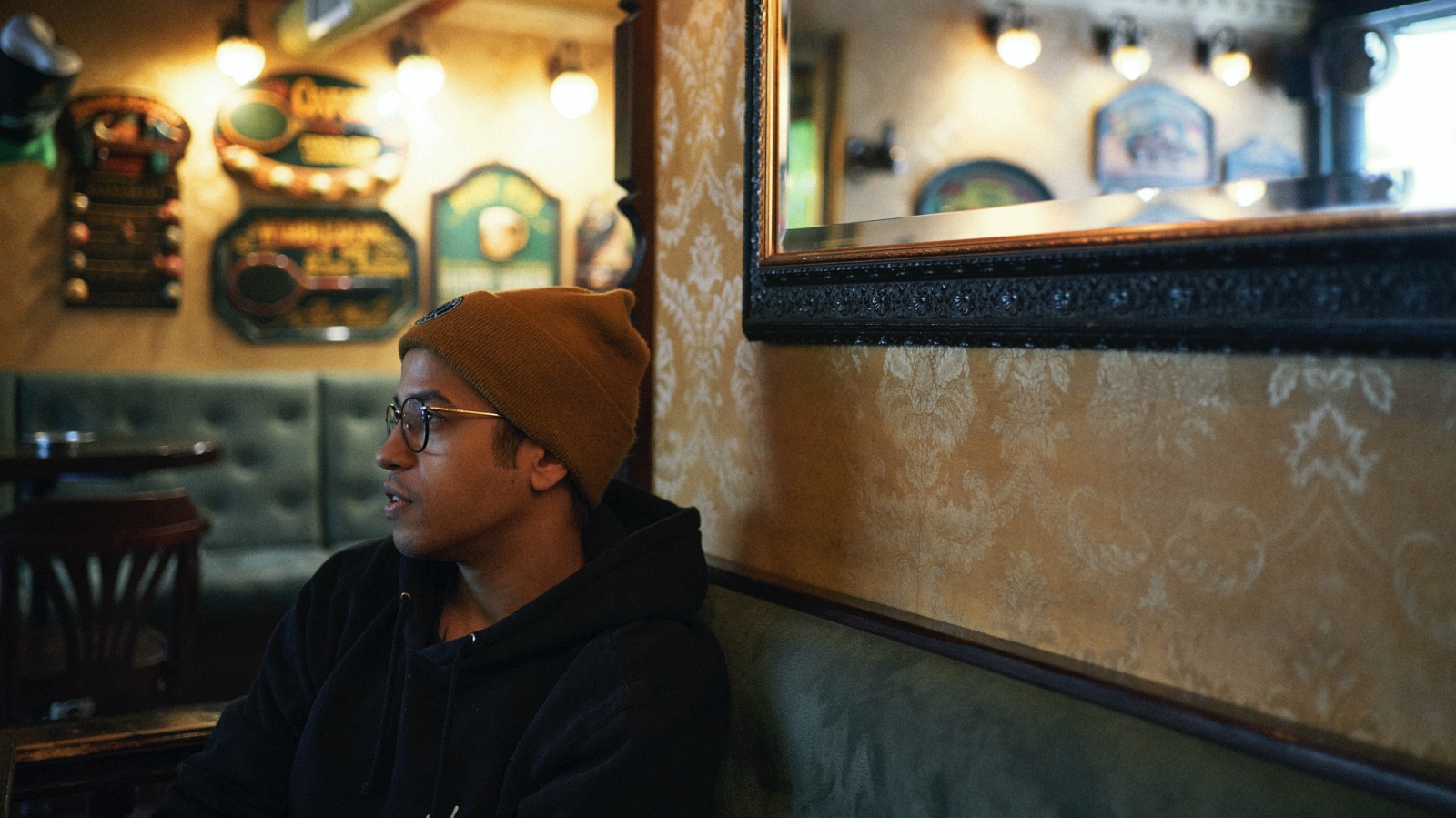
Would you say the situation today is any better?
Regardless of all my bad experiences, I’m grateful. I live a different life now. Times have changed, the country has changed. There’s no more of that plastic racism like we had in the 90’s when little Dusan Jovanovic was murdered in Belgrade streets.
Sadly it seems like we’re circling back to it now, especially with the refugee crisis and the right-wing which is taking hold throughout the EU. The identities are split more and more to ‘us’ and ‘not-us’ and there’s talk of reinforcing borders, dividing people, building walls. I think the world is slowly slipping and that it’s a crisis of lacking that international spirit that we once lived.
History repeats itself, but in a more subtle and sinister way.
I don’t experience discrimination today in the same way as I did in the 90’s, but that doesn’t mean it isn’t there anymore.
I experience it in the system in the same way as other minorities or women do in our society.
Your name is linked to many professions. Would you say that Galeb Nikacevic is a journalist, a show host or something else?
Whenever I participate in panel discussions or TV shows, they always ‘slap on’ the title of ‘journalist’ next to my name. But I never studied to be a journalist, nor was I interested in it and I certainly don’t have all the education that makes up a journalist.
I think people colloquially call me a journalist because I worked as a TV show host.
Still, even then I was kind of a TV host because it came along - it was a consequence, not my own intent. For example when we make a project and we need a host and don’t find anyone in casting, I usually get saddled with it because we don’t have anyone better.
That’s how I started having my pictures taken in Vice. When I signed the contract, my only request was that I never have my picture published because I’d pay all the price of losing my anonymity without reaping any of the rewards.
I worked as an editor of a culture programme and we were organizing casting. In order to show the applicants what they needed to do, I’d go out and do it myself. Seeing how our management was from the USA we’d send them recordings so they could select the best candidates. But they ended up liking me the best so that’s how I got that role until we found someone better.
So, I wouldn’t say I was a host because that’s a very demanding profession that requires a lot of work, education, responsibility for what and how you say…
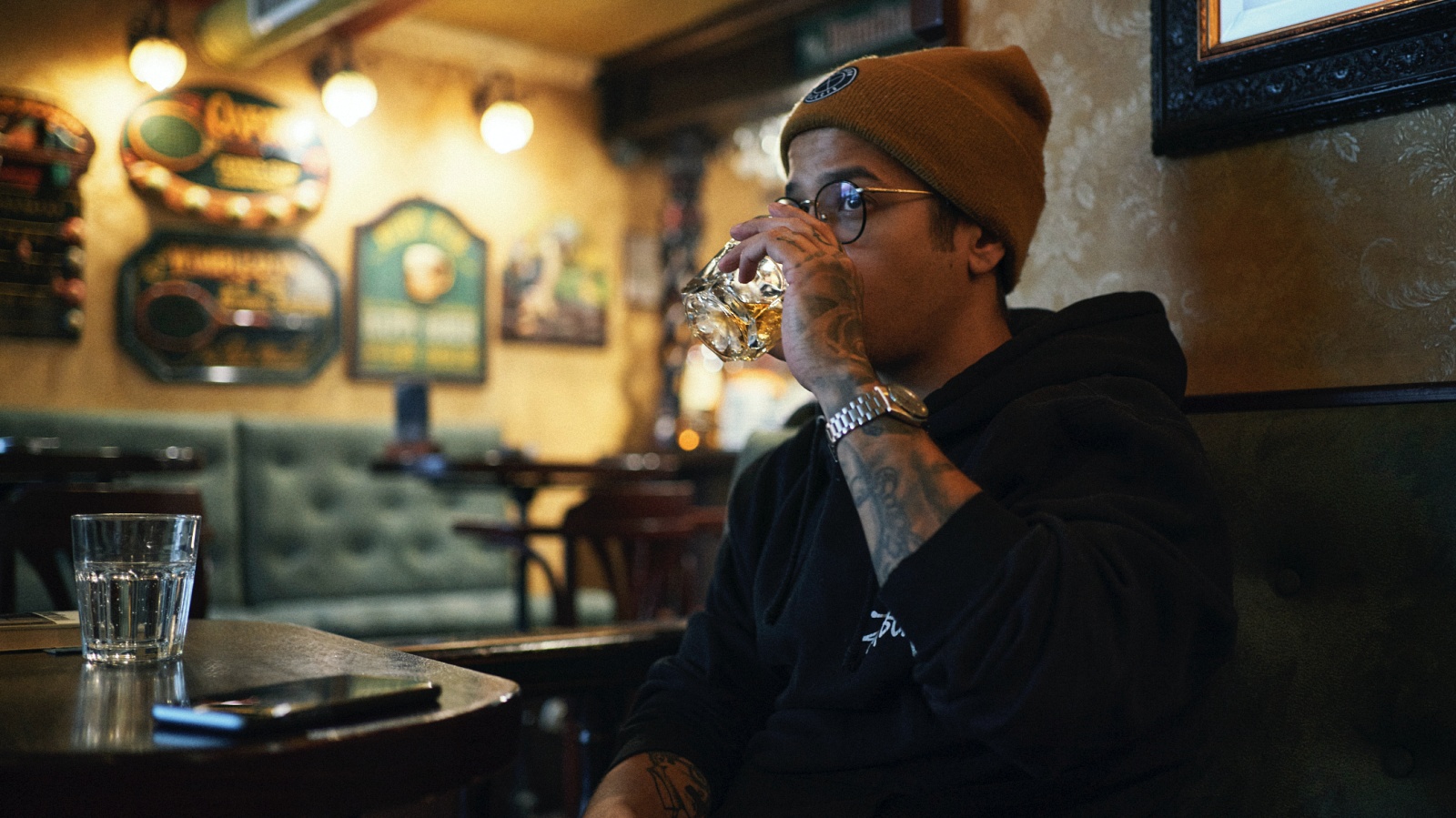
By playing various roles in the media, you’ve built up a painstaking name for yourself. How did you enter the industry in the first place?
It was completely by accident. I was a city kid and back then we’d all met in Republic square. I think that everyone who became anyone in Serbia’s culture scene in the 90’s first gathered in the Square. It was the epicenter of everyone who had the need for any kind of progressive culture and people who didn’t like the carefully tailored mainstream narrative.
If you wanted to partake in that culture, you needed to invest two things - time and effort.
You had to dress up, take the bus, get to the city and spend hours looking through cassettes and records.
I remember I often visited a record store in Makedonska street. They had record players so you could listen to them via headphones and I’d listen for hours. That’s how you became friends with the shop attendants and the people who hung out there.
If you wanted to listen to newly released music, you had to wait for the next episode of the music radio show on Wednesdays at nine. If you missed the episode, you’d have no idea what people in the Square were talking about and you’d be out by default.
The only other way was to go to the club and we couldn’t get in there as kids unless we got up to mischief, so we were always coming up with ways to get in.
And that’s how you became a part of this different cultural scene and built your identity in your formative years, by consuming time and effort put into culture.
Then the shirts you wore would be a statement on your values and if you happened to see someone wearing the same thing it was instant friendship.
That’s how the entire city crew knew each other and many of those people went on to become performers.
When the first music show Metropolis began in 2000-2001, the entire crew who knew music and orbited the music scene was involved in it.
Zeka the punker from Manjez was technical director, Mita the singer for Block out was the art director, Dusan Kalicanin who organized those trance Serbia technocracy parties was the editor. Then, Krle who owned Metropolis records (which published artists like Gru, Sunshine and Eyesburn) was the owner of the project.
Then, when they were looking for show hosts, they wanted people who knew music and could make content.
I was called in as a member of the crew and I’ve always had a degree of logorrhea, so they kind of wedged me in there and I was happy because it was my first paying job.
Before that, I washed windscreens for people in gas stations and would go fruit picking in Bolec and Ritopek or would collect secondary materials.
This was the first time I had a job, for which I got a regular paycheck every month. It was a ridiculously small paycheck - let’s say around 6-7 thousand dinars which is like 100eur today, but it was enough for me to pay for a Wiener Schnitzel in Kasina and live on the high for a day.
For a while they called me ‘Garsonjera’ because I lived at the studio and slept on set because I had nowhere to live.
It was all fun, wasn’t too hard and I got paid for it, so I kept doing it as a path of least resistance.
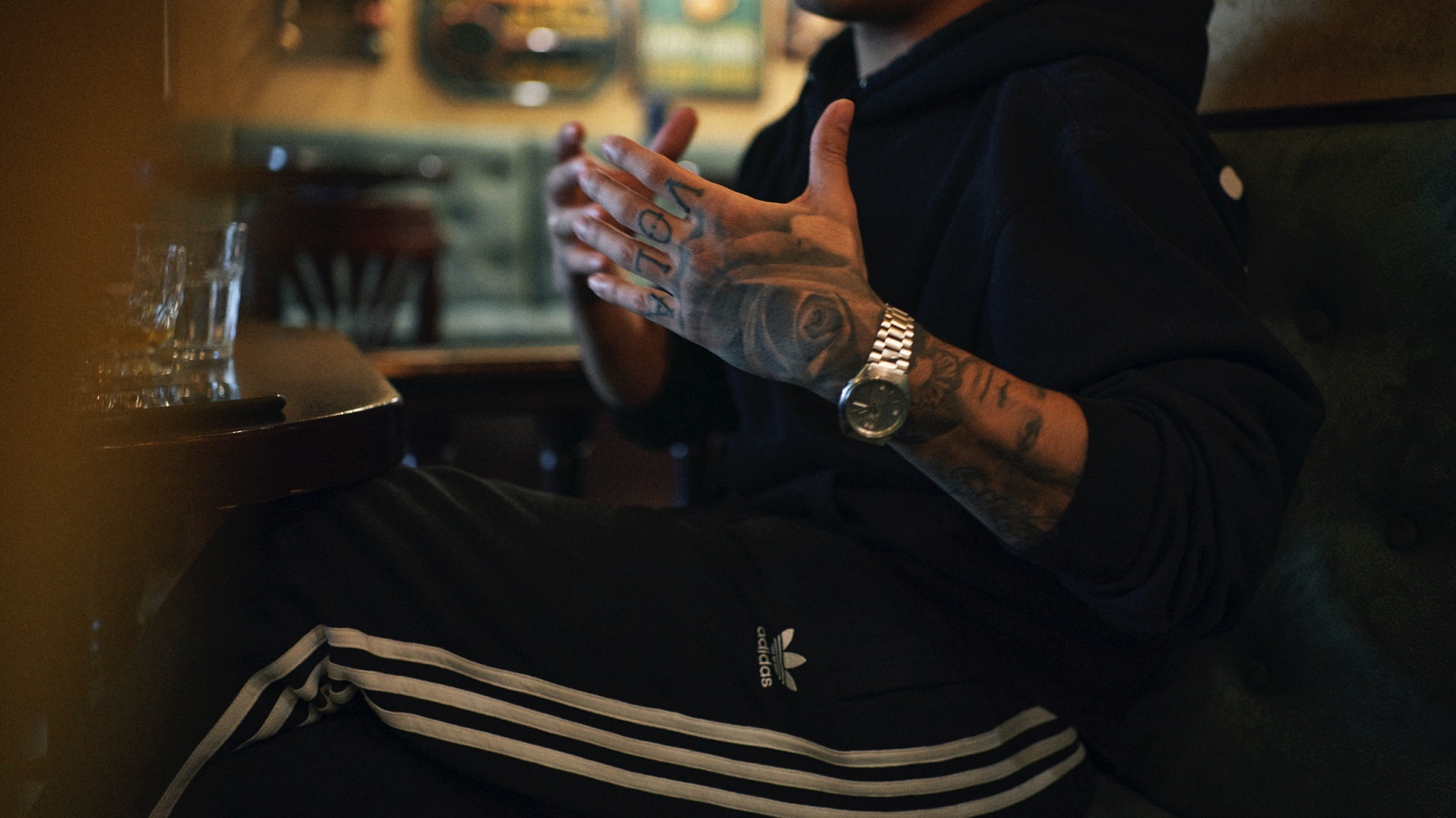
Later, from video and show hosting, you crossed over to written form.
When I discovered writing and realized it had been there the whole time, I developed a constant need to always be writing stuff down. Even today I have a little notepad that I carry with me and write down anything I think sounds nice, or useful or if I reach some conclusion. I wrote down my dreams, my moods…
I got serious about it in 2007, when I went through my first real emotional crisis which really broke me. I couldn’t understand what was happening, why I felt equally bad when I went to bed and when I got up in the morning and then throughout the day. I tried everything - the gym, boxing, but nothing helped.
That’s when I found a book which was rare back in the day - “Flow My Tears, the Policeman Said’ by Phillip K. Dick. I’d read that book as a kid and wanted to own it and only managed to find it when I was 25. I remember the first time I went to bed and wasn’t occupied by problems was when I started reading that book.
My last thought before I went to bed was about the protagonist and my first when I woke up ‘Where did I leave off?”
That was the moment when I escaped my problems a bit and gave myself room to breathe.
I started reading obsessively after that. It began with Sci-Fi and when I got to Solaris by Stanislaw Lem, I realized how much a genre’s style and typology guidelines could have artistic value. It was my pass into more serious literature.
Then, when I got back to what I used to write down, I noticed a huge disparity between what I read and what I wrote. Everything of mine seemed so dumb and banal, full of generalities. I realized I didn’t have any original thoughts, but it was all parroting things I’d already learned.
I felt the need to do something about it.
That was when I found professor Nadica Tomic who taught Serbian language and literature in the 1st Belgrade ‘gimnazija’ high school. She helped my godmother prepare for her literature exam, so I started seeing her twice a week - at 25 - for Serbian lessons. So I could become more literate. I bought a grammar book - the yellow one for high school, I got to writing and that’s how it began.
We can’t talk about great ideas while being illiterate. Phillip K. Dick said “Words are the most powerful weapon in the world, because those who control words and what they mean control those who have to use them.”
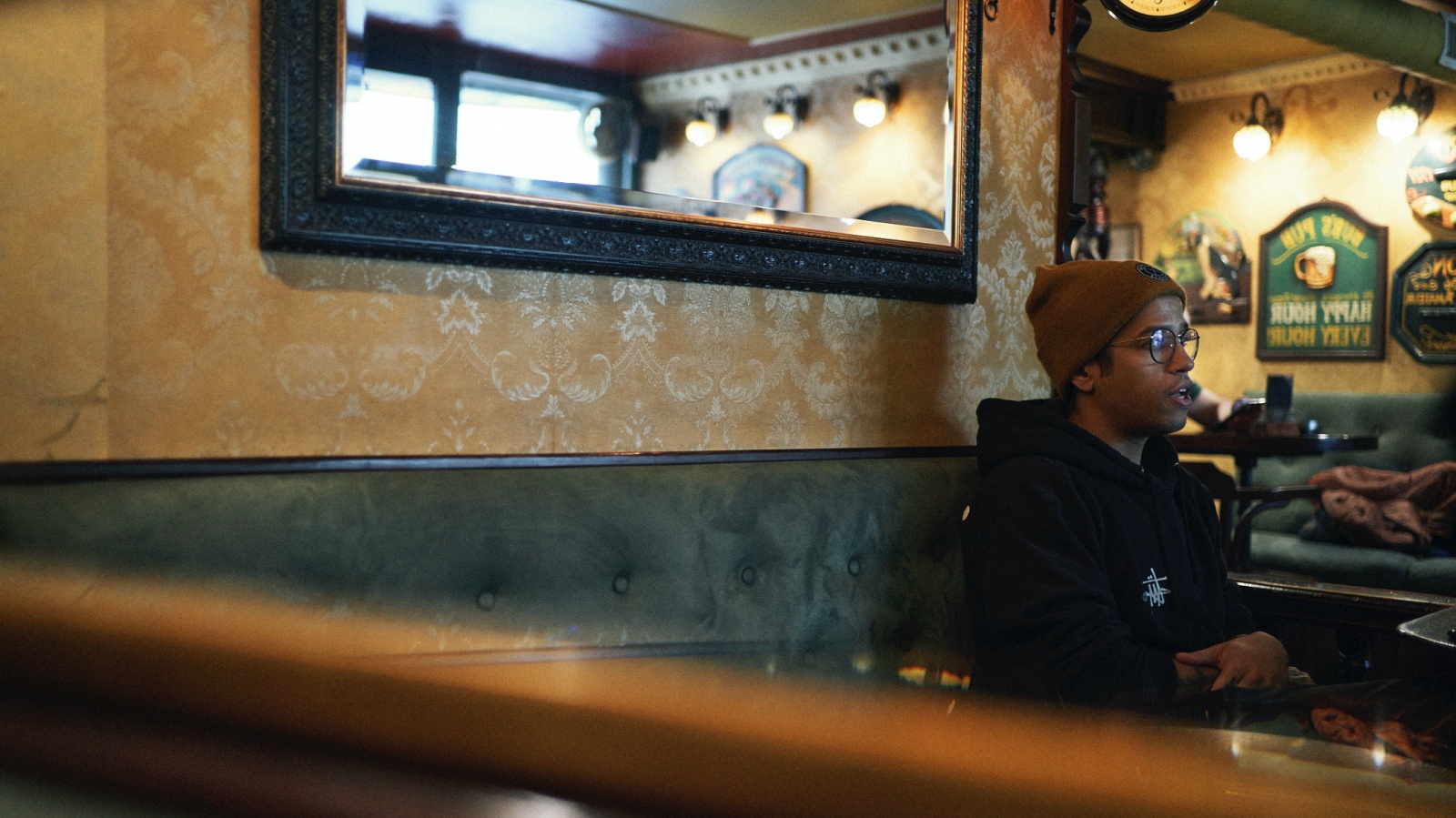
Now you run a very successful Agelast podcast so you can attach ‘podcaster’ to your string of titles.
Podcasts are one of my big passions. I’ve been following podcasts seriously since 2014, when I discovered that massive brands like National Geographics and The New Yorker have their own podcasts. Around 2015-2016, I started listening to them instead of music.
I started the Agelast podkast as a cost-effective project that wouldn’t require too much funding. I had ideas for much bigger things for my channel, but all of them would've been tremendously expensive. I realized that the only way I could bring them to fruition is if I build up a large enough audience first and get endorsed by commercial companies.
I’m interested in documentaries. I wish there was a really good, Serbian YouTube channel that has documentary content and is fully online.
However it turned out that podcasting isn’t as cheap as one might imagine at first.
I learned that there was such a thing as ‘auditory exhaustion’, which is a very real problem. Like, if you’re listening to an interview you’re really interested in, but you lose interest if it’s longer than 15 minutes. That will usually happen due to poor sound quality.
So, you have to have high quality recording equipment that will make your listeners feel as though they’re in the same room with you. Then you need a setup, and better cables, and high quality sound card and sound editing software, and a camera and people who will record and process the audio…
It comes down to quite a lot of money, but I went all in on it and now we have no choice but to swim.
Luckily, you have with you a team of enthusiasts to work with.
None of us are making a single dime with this - we do it completely out of love. For example Voja, the kid who records for us, contacted me with a text saying ‘I noticed you were having video issues. I have equipment, love podcasts and I want to help’.
We met for coffee and already the next day he was recording with us. He helped us make our channel what it is today.
I have great hopes that if we maintain our quality and people see that they’re consistently getting good content, it will all come to fruition soon and open doors for other podcasters.
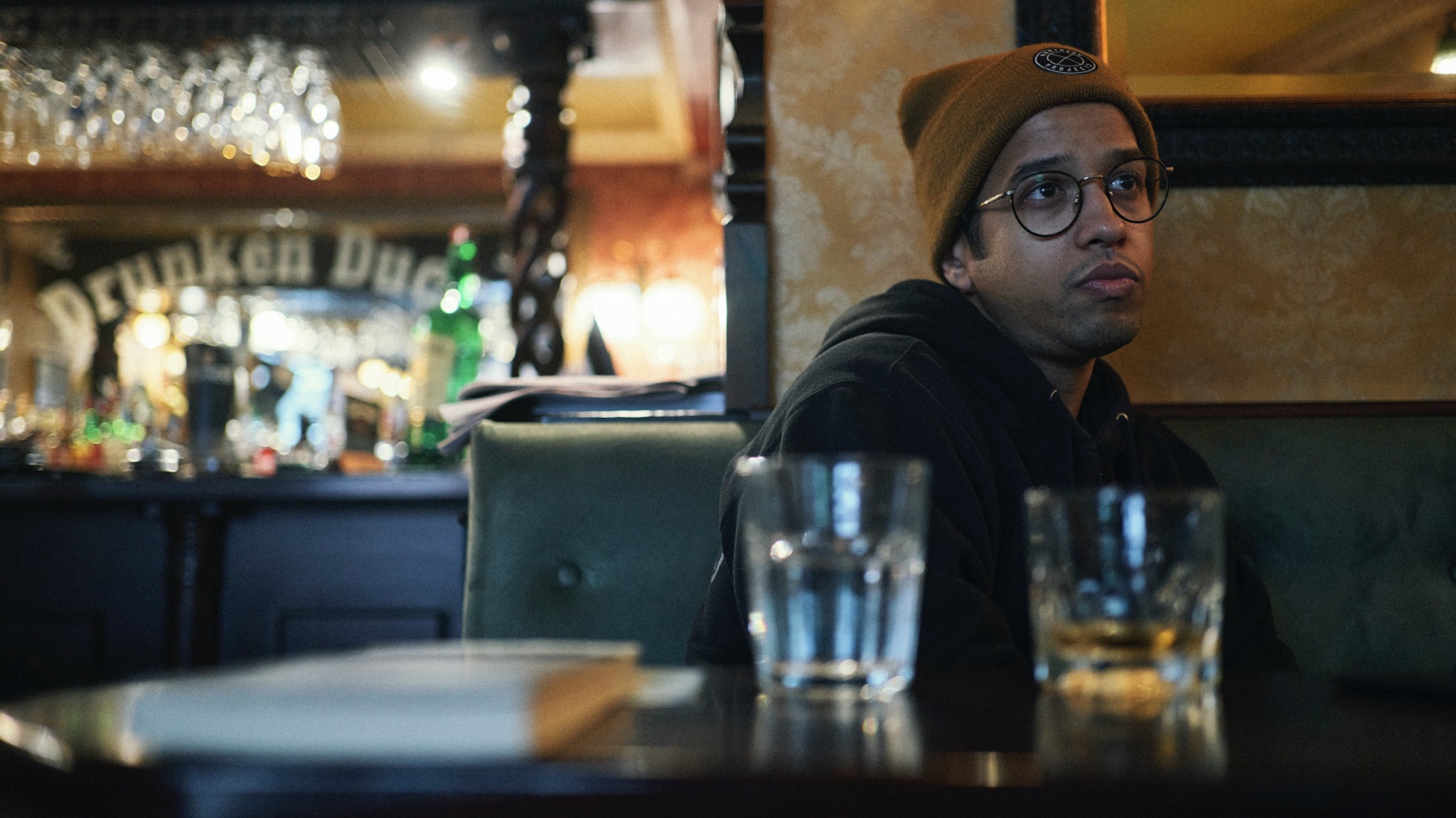
What kinds of topics does your podcast cover?
Our podcast is a mirror of everything we’ve talked about so far. If you look at our About page, you’ll see it says what I had realized over time - that the oldest story in the world is the myth about ‘search’. For as long as man has existed, he has sought something - either physically or inside of himself.
Meso Selimovic says in the preface of his book “Death and the Dervish” - “All stories are about the search for happiness”. I wouldn’t say personally it’s for happiness, but I do agree it’s all about the search.
The name of our podcast itself, “Agelast” is Greek in origin and means ‘he who does not laugh”. It refers to my growing up which set me on my journey of searching.
I try to bring in people who have something interesting to say and teach me something, as well as to share my thoughts with people.
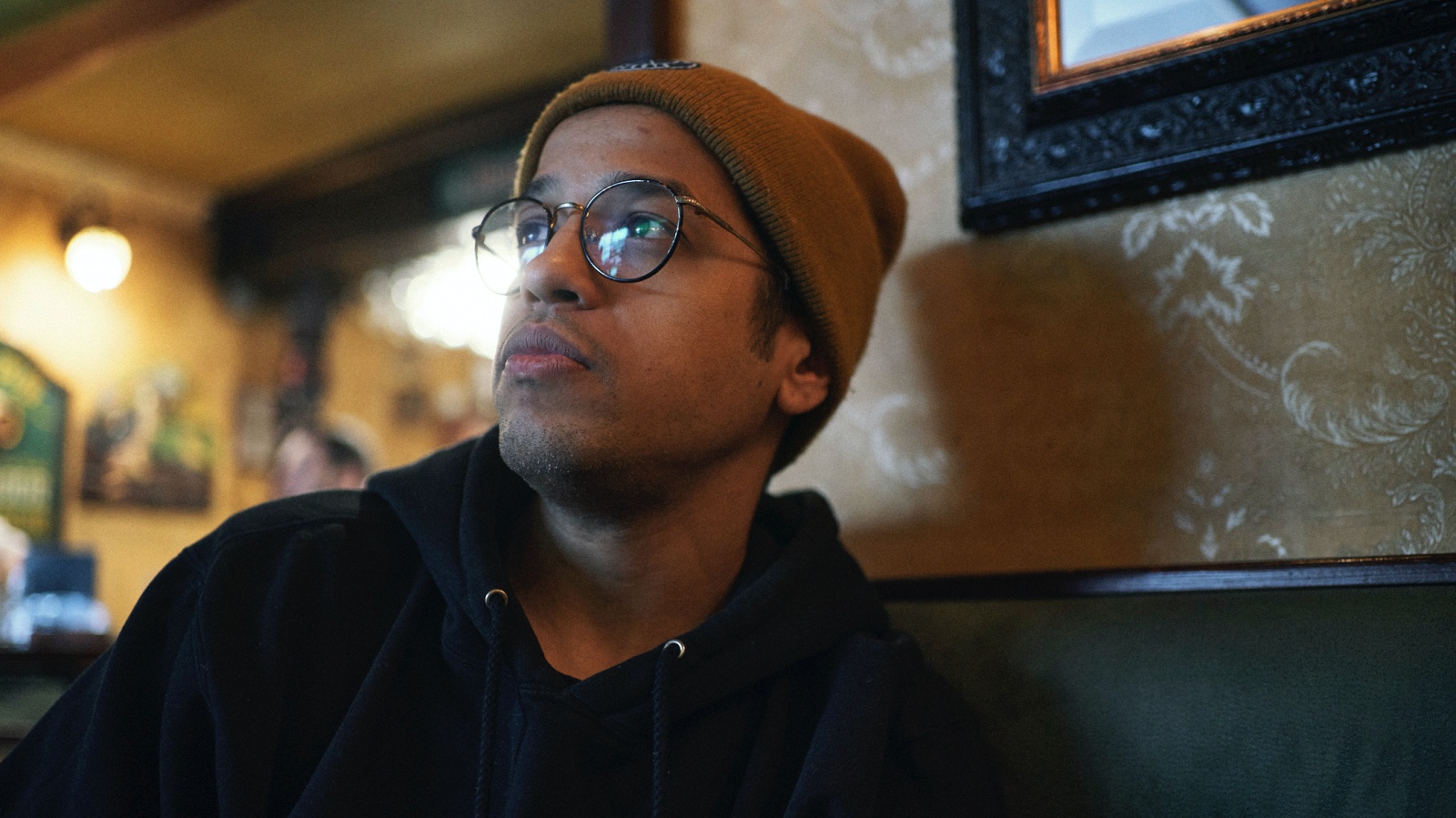
What are the main advantages of podcasting in your opinion?
Podcast is a format in which all participants can talk as equals, the way they would while having lunch or drinks together. I think it’s something that people nowadays are really missing. The sense of familiarity. The podcasters you listen to kind of become your life companions because you listen to them in certain situations when you’re alone with your thoughts - while driving, running, travelling, walking…
Through the podcast episodes, you get to know about the podcasters’ personalities. What they like or dislike, what are their flaws and virtues. In order to run a successful podcast, you have to put a lot of your true self into it. Give people a piece of yourself.
Yes, we do live in a time when we’re more connected than ever, but we’ve also never been lonelier. Podcasts save us from that loneliness and give us not only valuable information, but also something to fill our time and help us connect with the host and audience.
You have to be ready to share your intimate thoughts and be vulnerable. It’s exactly those points in conversations that people tend to remember and hold onto and later inbox me about them. They’d talk about how they felt the same way at some point of their lives and how much it means to them to hear me say these things.
What are your plans for the future?
I’d like to work on audiobooks as podcasts. To have a good atmosphere in each episode and talk about a book - how and why it came to be, what to pay attention to while reading, what was its significance, who the author is and what they talk about. After the listener knows all of this, we read the work and enjoy it together.




 6 ℃
6 ℃

